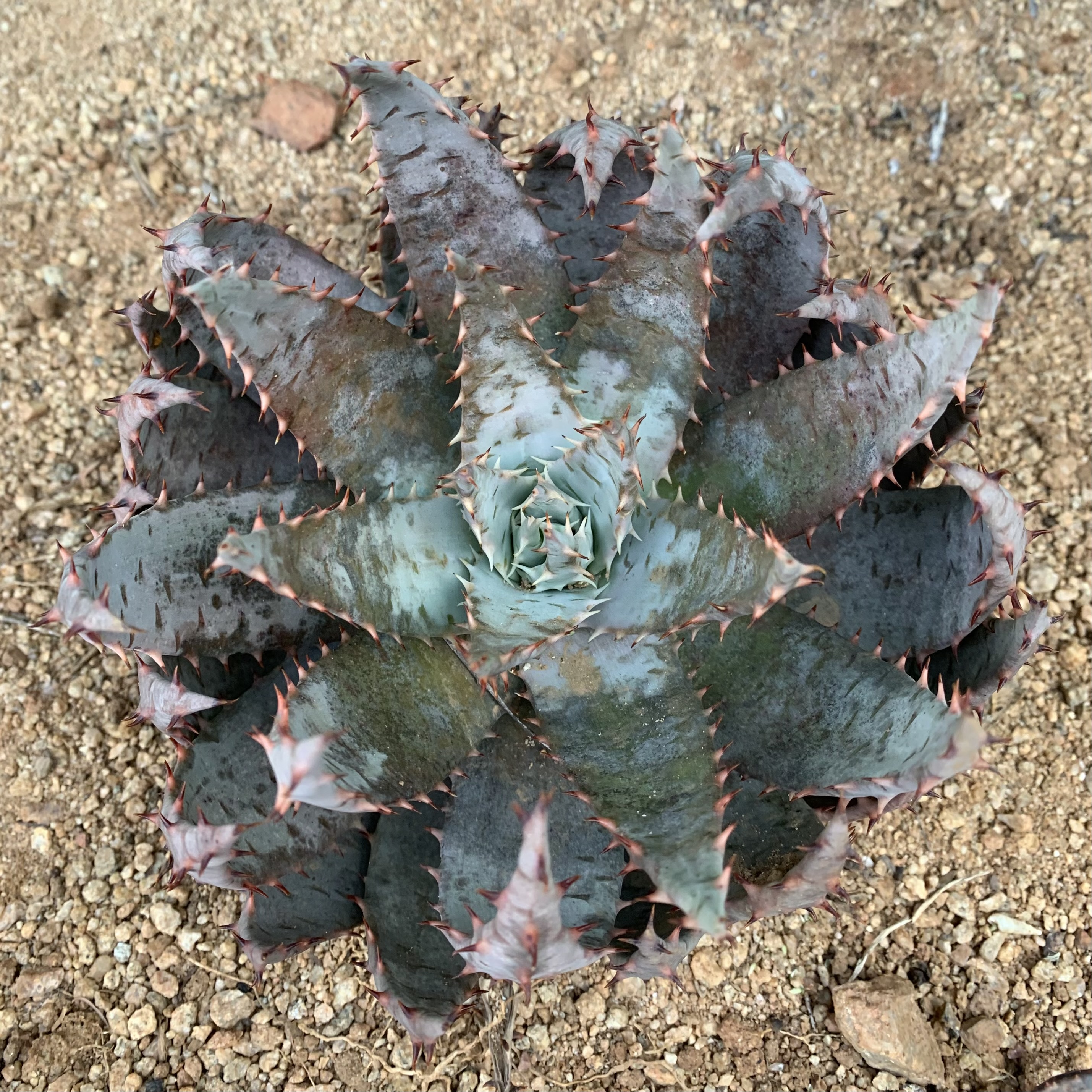
Aloe peglerae
R70.00
Out of stock
Common names: Wandering Aloe, Pegler’s Aloe
Family: Asphodelaceae
Aloe peglerae is a compact, slow-growing succulent native to South Africa, especially the grasslands of the Highveld region in Gauteng and Mpumalanga provinces. This aloe is known for its striking rosette form and is considered a rare and threatened species due to habitat loss.
Origin and Habitat
Aloe peglerae grows naturally in rocky grasslands and open slopes at moderate altitudes. It thrives in well-drained soils with good air circulation and moderate sunlight. The climate in its native range includes warm summers with summer rainfall and cool, dry winters.
Plant Description
Aloe peglerae forms dense, symmetrical rosettes of thick, fleshy leaves. The leaves are grey-green with a bluish tinge and are edged with soft, fine teeth. When exposed to strong sunlight or drought stress, the leaf tips and margins often develop reddish or purple hues. In late summer to autumn, the plant produces tall flower spikes with tubular, bright orange to red flowers that attract sunbirds and other pollinators.
Care Instructions
Light
Aloe peglerae prefers full sun to partial shade. It grows best with several hours of direct sunlight daily but may benefit from afternoon shade in very hot, dry climates.
Watering
Water moderately during the growing season (spring to autumn), allowing the soil to dry between waterings. Reduce watering significantly in winter to prevent root rot, as the plant becomes semi-dormant.
Soil
Use a well-draining succulent or cactus soil mix.
Temperature
Ideal temperatures range from 15°C to 28°C. Aloe peglerae can tolerate brief periods of cooler weather but should be protected from frost.
Additional Information
Aloe peglerae is prized by collectors for its attractive rosettes and bright flowers. It is best grown in pots or rock gardens with good drainage and air flow. Due to its threatened status in the wild, cultivation helps conserve this unique species. It propagates by offsets and occasionally by seed.
Plants
Explore our rare cycads, clivias, and succulents.
Shop
Garden
© 2025. All rights reserved.
(WhatsApp)
